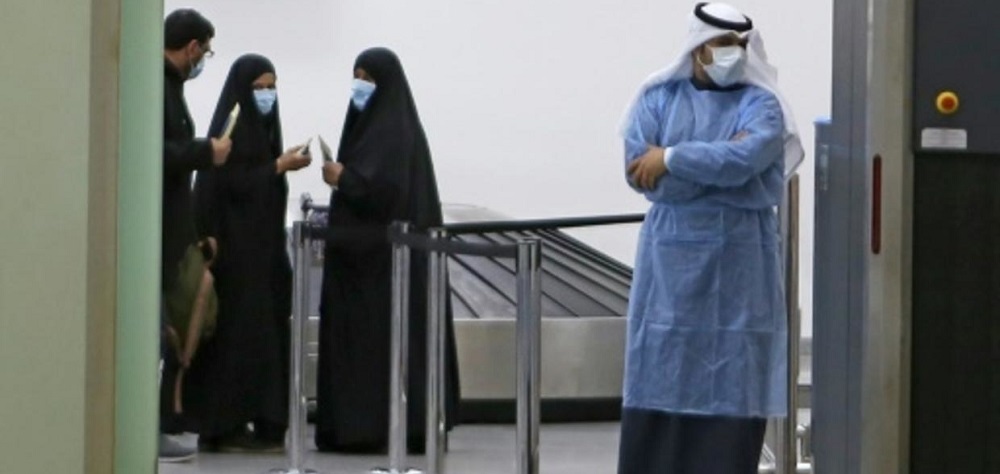Alwaght- Reports emanating from Bahrain say that the ruling Al Khalifa regime continues its crackdown on the Shiites despite the outbreak of the coronavirus in the tiny Persian Gulf kingdom.
The spiritual leader of the Shiites in Bahrain Sheikh Isa Ghassem has recently published a statement, calling on the regime’s rulers to release the large number of the political prisoners in the country. He warned that if coronavirus spreads wider and smashes the prisons, a big wave of public fury will be caused and the country will sink into multiple security problems. The West-backed Bahraini regime has so far refused to release the prisoners, a large number of whom are elders and ill.
Rejecting Bahraini nationals, revoking citizenship: two sides of the same coin
Since 2011, the Bahraini regime adopted a heavy-handed crackdown with the help of Saudi Arabia and put maximum pressure on the political opposition. It clapped down against any voices rising against dictatorship by the Shiites who are the majority in the small Arab island state. Some court rulings stripped the opposition figures of their nationality and expelled them from the country. The moves, which drew strong criticism from home and international rights groups including the Amnesty International, still continue in Bahrain and are used as a key tactic to deter the opposition by the Manama regime.
As the coronavirus began to spread in the country as in the world, the government rejected to take in the Bahraini nationals who live or work in Iran, Qatar, and Oman. It was under international pressures that the authorities began to accept them, though partially and with prolonged periods.
Recently, Qatar proposed that it was ready to send the Bahraini nationals with a free flight to Manama as the COVID-19 is spreading in the Arab country. Bahrain responded negatively to the proposal, saying that in the middle of the crisis, Doha intends to take political advantages of the matter and that Manama will evacuate them from the Arab emirate at an appropriate time.
Experts warn that by taking such an approach to the citizens outside the country the regime tries to withhold services from its nationals and even prevent them from returning to the country.
Al Khalifa, since 2011 facing heavy waves of anti-regime protests and launching a bloody campaign against the demonstrators on the strength of backing from the forces of the Peninsula Shield— military units sent by Saudi Arabia and the UAE upon eruption of the demonstrations to quell the pro-democracy voices—, continues to promote a policy of demographic change to stabilize its largely volatile situation.
Since the Shiites in Bahrain are the majority, the regime uses a policy of maximum pressure towards demographic change. Tactics like revocation of the nationality of the opposition leaders and rejection to accept in the nationals after they travel abroad under various excuses are part of this plan.
The coronavirus pandemic appears to be giving the Al Khalifa rulers a new chance to push forward with their plans. The Bahraini authorities are now rejecting their nationals coming home from some foreign countries under the ruse of health and security measures amid the COVID-19 outbreak.
Thus, it seems that rejecting the Bahraini arrivals from other countries is the other side of the same coin of the policy of nationality revocation as part of the broader policy of demographic change.
Home and international pressure builds on Manama rulers to release political prisoners
Recently, the 14 February Youths Coalition, a major opposition alliance, has been pressing the government to free the political prisoners as the pandemic hits the nation. The coalition leaders say that the government is “deceiving” the world community. “It claims to release many prisoners but in fact it is releasing a very small number, which is a risk to prisoners’ health to stay behind the bars,” an opposition member said.
This is coming while the rights groups still express concerns over the religious freedom in Bahrain and call on Manama authorities to pave the way for the Shiite community to participate in the political arena.
Human rights groups have lately sent a letter to King Hamad bin Isa Al Khalifa asking him to “immediately” release the clerics behind the bars.
“Bahrain’s significant release of prisoners is certainly a welcome relief as concerns of the spread of COVID-19 in the country increase,” said Lynn Maalouf, Amnesty International’s Middle East Director of Research.
“But authorities must now speedily release those who never should have been in jail in the first place, namely all prisoners of conscience who remain detained solely for peacefully exercising their right to freedom of expression and other human rights.
“They should also consider the release of older prisoners and those with existing health conditions, who remain at high risk of contracting COVID-19.”
But things do look easy. The ruling family adopts a strict sectarian policy at home to prevent the Shiites from entering the political process though they are a majority in the country. As long as Al Khalifa looks at them as a threat to its very existence and rule, it will not relent its pressure on them, especially their spiritual and political leaders. Not only it will not abandon this policy, but also it seems to be using every available way and tool to realize this aim.



























